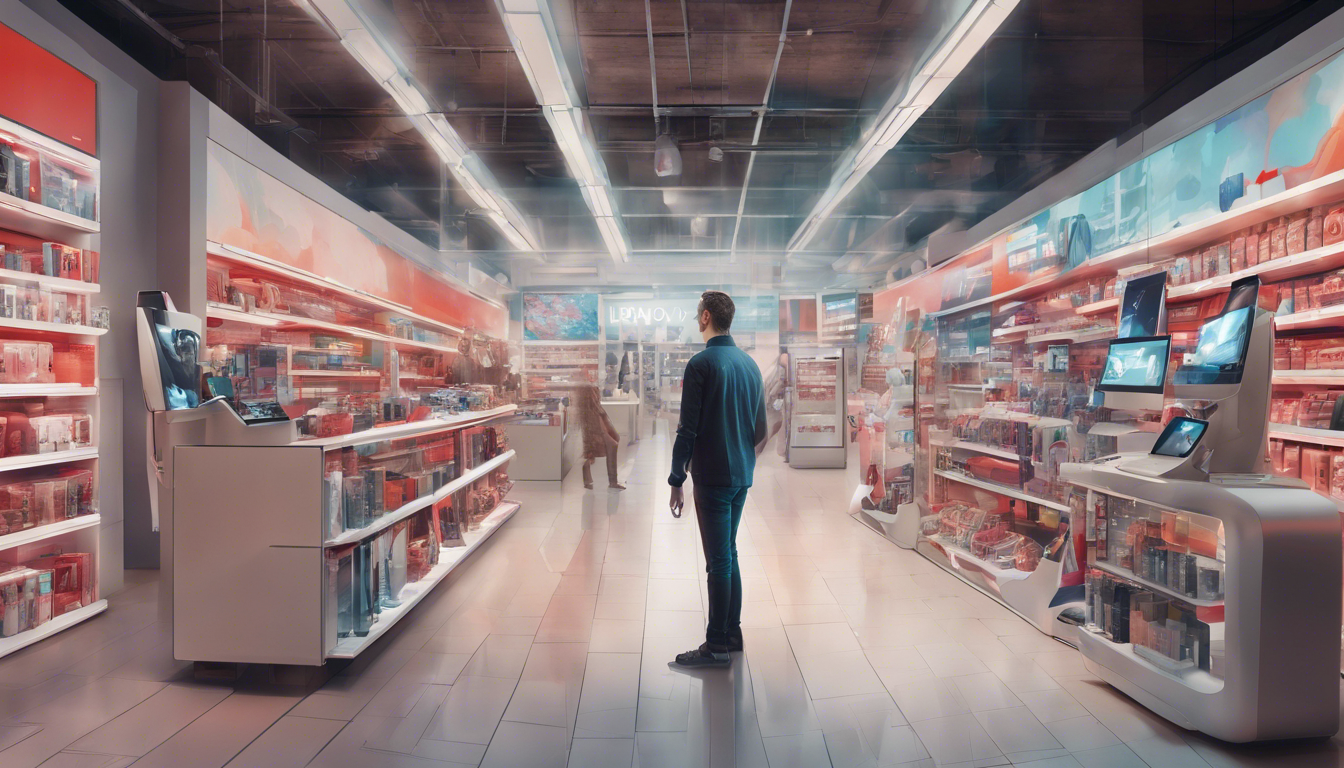
In the ever-evolving landscape of retail, artificial intelligence (AI) has emerged as a game-changer, redefining how both retailers and consumers experience the shopping journey. With the recent surge in holiday spending and the advent of high-demand events like Black Friday and Cyber Monday, Per Overgaard, CTO EMEA at Lenovo’s Infrastructure Solutions Group (ISG), shares insights on how AI is transforming the retail sector.
1. AI's Impact on High-Demand Shopping Events:AI has become the cornerstone for retailers navigating high-demand shopping days. Real-time analytics provide invaluable insights into shopper behavior, enabling retailers to offer personalized services, implement dynamic pricing, and optimize promotions. This technology proves crucial in lowering costs, preventing losses, and enhancing overall operational efficiency during critical shopping periods.
2. In-Store Planning for Enhanced Customer Experience:Shopper behavior analytics not only revolutionize store planning by optimizing product placement and checkout intelligence but also empower retailers to deliver personalized advertising. This dual benefit of improving customer experience and operational efficiency is essential for successful sales periods, ensuring a seamless and satisfying shopping experience for consumers.
3. Real-Time Promotions and Decision-Making:Utilizing edge-enabled smart cameras and sensors, retailers can make rapid-fire decisions on days like Black Friday. AI allows real-time analysis of in-store data, enabling targeted advertising, dynamic pricing, and promotions. Kroger's implementation of edge AI servers exemplifies the potential of this technology in shaping the future of self-checkout and combating errors during the purchasing process.
4. Predictive Analytics in Inventory Management:AI, coupled with IoT solutions, plays a pivotal role in inventory management ahead of high-traffic shopping events. Retailers can efficiently order products, stock shelves, and manage logistics by leveraging analytics from warehouses and stock rooms. This proactive approach ensures smooth operations during peak shopping periods like Black Friday.
5. Understanding Customer Behavior Patterns:Linking real-time stock levels to purchasing trends helps retailers optimize store operations during peak shopping days. Insights into customer behavior patterns enable retailers to stock floors accordingly, minimizing the risk of stock shortages during high demand. This understanding also enhances store intelligence, allowing for richer in-store experiences and effective expansion across multiple locations.
6. Overcoming Challenges in AI Implementation:Despite the benefits, retailers face challenges in implementing AI, such as readiness, job loss concerns, and data security. Education about AI's advantages and seamless deployment methods, including integrating edge computing with existing systems, proves crucial in addressing these challenges.
7. Emerging Trends in AI for Retail:The future of retail lies in AI chatbots built on generative AI, providing digital in-store experiences and improving customer satisfaction. Successful retailers are integrating digital services, leveraging AI and natural language processing for omnichannel approaches. IDC predicts that, by 2025, 20% of the top 100 global retailers will have embraced AI systems to enhance decision-making, operations, and retail planning.
In conclusion, as AI continues to evolve, its integration into the retail landscape promises a transformative shopping experience for both retailers and consumers. The strategic use of AI technologies positions forward-thinking retailers at the forefront of innovation, driving business results and shaping the future of the retail industry.